When Jerry David DeCicca wrote and recorded his sixth solo album, he had no idea how much his life was about to change. The sessions that became Cardiac Country started as a way to test some studio microphones; its songs were cobbled together quickly and tracked live at San Antonio's Blue Cat Studios. A few short months later, DeCicca was facing the scariest moment of his life after receiving a diagnosis that led to open heart surgery at the Cleveland Clinic to replace his leaky aortic valve. The songs quickly took on new meaning as the singer-songwriter wondered if the pen and paper had been trying to tell him something all along.
From the foreboding "your heart remains healthy for what lies ahead" lyric of opener "Long Distance Runner" to the out-of-breath, tip of the cap to the past finale of "Old Hat"—recorded solo acoustic just two weeks before his operation—DeCicca faces life and mortality much differently than ever before on Cardiac Country. You can hear him running out of air as he sings and plays on this final track, created "just in case." The record's ethereal songwriting is channeled through DeCicca's signature blend of indie rock and folk sensibilities while incorporating elements of blues and country. His oftentimes haunting and grief-stricken lyricism is coupled with bouncy, sun-soaked production that is full of life. Cardiac Country feels like a deep breath of air, as it alternates between tight, anxious energy and more relaxed, spacious moments.
Cardiac Country also features pedal steel legend B.J. Cole, who contributed remotely to eight of the album's ten folk-country compositions from his home in London. His playing on the record ranges from traditional country-western voicings to a swirling, nearly psychedelic sound. DeCicca attributes his move to Texas 11 years ago to expanding both his musical palette and the sounds that he has access to. Now residing in Bulverde, Texas, with his wife, two dogs, three cats, and toads, DeCicca has built an impressive career through various musical identities. Before his solo work, he fronted The Black Swans, releasing records and touring between 2004-2011. He has also established himself as a producer for legendary artists, including Larry Jon Wilson, Bob Martin, Ed Askew, and others. When not making music, DeCicca owns and operates a vocational rehabilitation agency serving the Texas Hill Country and surrounding areas.
I spoke with DeCicca about the weight of Cardiac Country, how different parts of the country produce completely different sounds, and how his outlook on art and life has forever changed. This interview has been edited for clarity and length.

Hearing Allergies
Sam Bradley: I see that you're in Texas now, but where did you grow up, and how did you get involved with music?
Jerry David DeCicca: I grew up mainly in Ohio. I didn't get a guitar until I was probably 16. As soon as I learned three chords, I started writing songs. I would frequently see live music, and my primary interest was singer-songwriters.
I attended college in the early 1990s. The early '90s don't get talked about as much like Greenwich Village in the '60s or Houston in the early '70s—but the '90s were an incredible time for singer-songwriters just because of the trickle-down of major label money and indie rock becoming more and more accessible to people from record stores and college radio. There were so many unique singer-songwriters in the ‘90s, and I was kind of obsessed with all of them. Then, a few years later, I started playing open mics and was living in different cities and traveling extensively. The first record from my old band, The Black Swans, didn't come out until I was 30, which is kind of a long time to wait.
Sam: I feel like a significant amount of work in the alternative, indie rock, or singer-songwriter sphere can be traced back to the Midwest. What immediately jumps to mind are Wilco and Jason Molina, but there are countless examples. Even beyond the ‘90s, this trend extends to the “Midwest emo” scene, which became highly influential. Do you think there's anything about the Midwest, particularly at that time, that produced so many great songwriters?
Jerry: I think a lot of it is a lack of other things to do. When there's less to do, you're more concentrated in one or two areas. So in the Midwest, especially in a pre-internet world, you have more time to spend working on your band. Rents weren't as high, things weren't as expensive, and practice spaces were more accessible. I think very practical things often lead to creative periods, either in time or geographically.
Often, people lump everything in the Midwest together, which is understandable, but it’s pretty diverse. Northern Ohio and Southern Ohio are very different. You can hear it in people's voices; I can hear the allergies in people's voices from Southern Ohio. I think that the Midwest has always had a lot of bands because there are more practice spaces and more guitars. There has always been good rock and roll in the Midwest, but I think there are fewer clear identifiers for Midwestern music than for, perhaps, Californian music or music from Texas.
You know, in Jamaica, they talk about how the humidity and all these things sort of affect the sound of instruments and amps, diet, weather, and culture. Geography has a significantly more profound influence on music, especially music that’s not as mainstream or doesn’t initially gain mainstream recognition. That's the kind of music where you can hear the cultural influence. As a record producer, I've produced a record by a Texan. I've produced a record by somebody from Brooklyn, somebody that lives in Lowell, Massachusetts, and somebody that was born and raised in Georgia. You can take those four records and listen to them back to back, and you could match the singer to the state they're from within three seconds. So, I think that kind of stuff is still present in music. It was definitely present in the 1990s.
Sam: How do you think being down in Texas has changed your creative output or your view on songwriting?
Jerry: It's changed it quite a bit, though some of those things would be true if I'd moved anywhere. I think just moving in general changes people's point of view, and point of view is something that I've always been interested in.
One part of it is that you’re getting older, and you’re no longer with the same group of people you used to socialize with frequently. You're spending more time alone, and that's going to produce different types of songs. I'm working with different people, and that's going to produce different kinds of songs. I do most of my records at a studio in San Antonio, and on my new record, I've got a Latin percussionist. I've got access to people who play differently and hear music differently. So some of that's about moving, some of it's about making solo records instead of being in a band. When you make solo records, you can pull from anywhere you want, and a band is always going to be more of a self-contained unit.
I've always been a fan of Texas music, musicians, and songwriters. I think I always identified with them more than songwriters from where I grew up. Kris Kristofferson is my all-time favorite singer-songwriter. When I was 19, I saw Townes Van Zandt. When I was 17, I saw Jimmie Dale Gilmore. You know, I'd see Butch Hancock. I sought out these people at a very young age. This is always where I've wanted to be. I mean, nobody's ever going to consider me a Texan, but I'm happy if somebody considers me a Texas singer-songwriter.
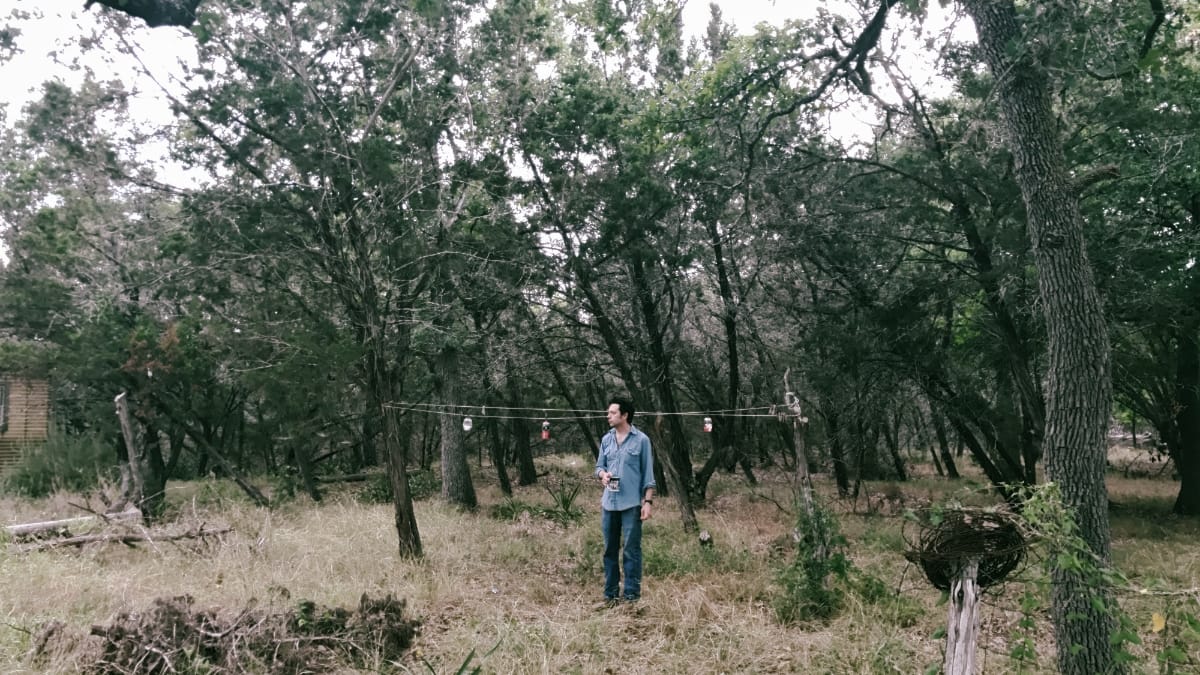
Leaving Space for Pedal Steel
Sam: When you look at a record that you've been a part of, how does it feel different when there's a band's name on the cover versus your own?
Jerry: I will tell you that being in a band versus being solo both have advantages and disadvantages. It was nice to have a band, even though for many of those years, I was practically dragging them by their teeth. They were always there to make the records with me and to tour with me. There is something about not feeling alone and a camaraderie that is almost tangible when you're in a band. It's a very real thing, and anytime you're doing something creative, it's very easy to feel like you're alone in it. When you have friends, and all my bandmates are always friends, you feel less alone.
Now making solo records, I don't need to run everything by four other people anymore. But you're having to come up with the money to pay for other people to play on your record. So, there's a financial aspect to it. If you want to do a gig, you're probably paying people to accompany you because you're not with a band. The upside is that you can work with whoever you want at any point in time. So there's more artistic freedom. But whenever you have more freedom, the lack of parameters can sometimes make it difficult to make decisions.
I'm enjoying making solo records. I enjoy working and collaborating with different people. One of the things I’ve done with my solo records is collaborate with many musicians whom I've always loved. I've worked with Spooner Oldham and David Hidalgo, and now I’m working with Augie Meyers and B.J. Cole, which is exciting for me. I wouldn't be able to do that if I were in a band.
Sam: How did the connection with B.J. Cole come about?
Jerry: I cut the record, leaving space for pedal steel, and I knew that he visited San Antonio from the U.K. every year to see friends. He also played on my friend Garrett T. Capps's record. So I wrote to B.J. and said, “Hey, next time you’re in San Antonio, would you like to get together and cut some tracks?" He wrote back right away and said, "I haven't come to San Antonio since the pandemic." He's in his late 70s. But then he said, "I've got a great home studio. I'll cut the tracks here. I've checked out your music. I want to do the gig." I said, "Well, I don't want to do a remote virtual session." He insisted, "No, I really want to do it," so we did it that way. He did an amazing job. He's a great player and did a terrific job recording himself. I gave him very limited instructions.
I initially knew his music, aside from his credits like “Tiny Dancer,” from seeing him play with John Cale on a TV show I used to watch in high school and college called Night Music. It was just him and John Cale, and I always loved his playing in a duo. I've been a fan for a very long time. He’s not genre-specific. He brings a lot of different ideas to his playing and how he approaches songs.
Sam: I read that the opening track's title, "Long Distance Runner," is a nod to the Grateful Dead's "Fire on the Mountain." What other influences went into this project, or are just present in your life right now, that listeners might not necessarily expect?
Jerry: I like a lot of music that's harder, but I also like a lot of stuff that's more laid back and meditative. One of my all-time favorite country singers is Don Williams. His stuff from the late ‘70s and early ‘80s has this sort of groove and a point of view—I think you can hear something similar on this record. I've always liked songwriters like Tom T. Hall, who tell a story with a sort of moralistic point of view that they're getting across that's not necessarily black and white. I think you can hear that in a couple of songs. I like this singer-songwriter named Greg Brown, who I believe does an excellent job of writing songs that are not overwritten in their emotions. All of those people sort of have a pocket rhythmically, and I think this record has a rhythmic pocket that was very intentional. A big part of that is the rhythm section that I used, but I sort of like country, folk, and roots music that sits on the back of the beat. I think that gives it some kind of a particular groove that you don't hear much in music anymore. I guess it's a little antiquated in some ways because it was cut live, so there's nothing quantified in terms of the rhythm or the tempo. That's kind of what I was going for.
Then there are also those Grateful Dead records, like Wake of the Flood, that have that pocket too. I've always liked that, just the sound of a band in a room.
More Serious Than a Murmur
Sam: When it comes to the recording of the record, I wanted to know the timeline of what was happening and when. How did the creative process start to change after you received your diagnosis?
Jerry: I wrote seven of the songs very quickly, because a friend of mine at the studio in San Antonio offered me a couple of free days to test out some microphones. I didn't have any new songs at the time, so I wrote these, not knowing what they meant together. Then I cut another song at the same time. It was an older song that I had never recorded before called "Knives." Then I had my yearly physical in January, and a heart murmur was noticed. It just snowballed from there. At the time, I thought I was in the best shape of my life, although looking back on it, once I got the diagnosis, I realized how much more serious it was than just a murmur. I could look back and I could see different moments that maybe I was more symptomatic, and I had assigned it to other things like allergies, stress, or aging.
You know, it was probably the scariest time of my life, and it was shocking. Then I recorded two more songs. One of them was a song I had written a long time ago, called “Dripping Man,” about crying all the time, because I was crying all the time out of fear and stress. I wrote another song, which is the last song on the record, called "Old Hat." I recorded those two songs just a couple of weeks before the surgery. Because I was definitely like, "I think I'm going to make it through this, but you know, I'd better record these songs now in case I don’t, because I don't want an EP. I want an LP."
So, only "Old Hat" was written with the knowledge of my diagnosis. Then, after I recovered from my surgery and began working on this record again, I started listening to the songs in a very different way. I started hearing things in them and thinking about how, when people think of a heart, they think of it as this muscle that pumps blood, and also as a sort of metaphor that we've adopted into. I started hearing a life-and-death theme in the songs, as well as heartbreak, and it began to make more sense to me. I don't tend to be very woo-woo or cosmic, yet I felt like the story that those songs were telling together in a lot of ways sort of foreshadowed my diagnosis. I wouldn't be able to write songs about what I went through with my health without it being very self-conscious now, because of how much I know and how I'd be writing about the past. I think the songs have a mysterious quality to them. They sort of predict my own experiences more.
Songs are always this sort of internal exhibition, essentially, and songs oftentimes surprise the people that wrote them, like "I didn't know that was inside me." Then you look back on them and you're like, "Oh yeah, I guess that is what was inside me." Now I’ve figured out a way to articulate it, and I’ve also found a way to frame it within three and a half minutes. I figured out a way to make it make more sense because I've rhymed the words, and it's a form of control. These songs have all those things, but they’re even less self-conscious than I think they would have been if I had written them after I received the diagnosis. The only thing self-conscious about it is the title of the album, Cardiac Country, which I intentionally made into a sort of playful pun on the style of music and the lyrical content.
Sam: It seems this record became much heavier, emotionally, than anyone anticipated.
Jerry: Yeah. I mean, it went from recording some songs to a couple of months later getting a diagnosis, and then every month after that, leading up to my surgery. I can hear how hard I'm working on that last song on the record. I can hear myself being a little bit short of breath. Maybe that's the symptoms, maybe it's anxiety because I was not doing very well mentally at the time.
What I like about records is that they're a document, although not many modern records, because they're all cleaned up. You're sometimes wiping clean the human spirit. However, the way that you play or sing a song is going to be very different if you do it a year later or just with different people in the room. I didn't want to go back after my surgery when I was feeling better and re-record those last two songs. I was like, "No, that's who I was then." I'm happy, you know, because I'm still understanding the record myself in a lot of ways. There are some qualities to it that are beyond me.
Sam: Was there ever a moment where it all felt too personal?
Jerry: I try not to think about those things too much. I don't write songs that I don't want people to hear. I don't mean to sound cute, but I don’t think anyone writes songs or makes records for people not to listen to them. I think that sometimes people might write a song and then say, "I'm uncomfortable playing that when there are certain people in the room." Say that somebody wrote a song about their dad, they might sing it every night of their life, but if their dad were sitting in front of them, they might not feel comfortable with that. I didn't feel that way with these songs.
I have friends who like and listen to my music, and they have told me that they can’t listen to this record because of the way they hear the songs now. They would not have had trouble listening to the record had I not had this health issue. So maybe in that sense, it's too real for them, and I appreciate that my friends worry about me so much. But I've always felt if you're going to be a singer-songwriter, then you gotta let it all hang out. To me, that's part of the deal. What I do like about this record is that I think it’s easy to listen to; it has a nice, kind of swagger to it. But certainly you hear the record differently, having biographical information, than if you didn't.
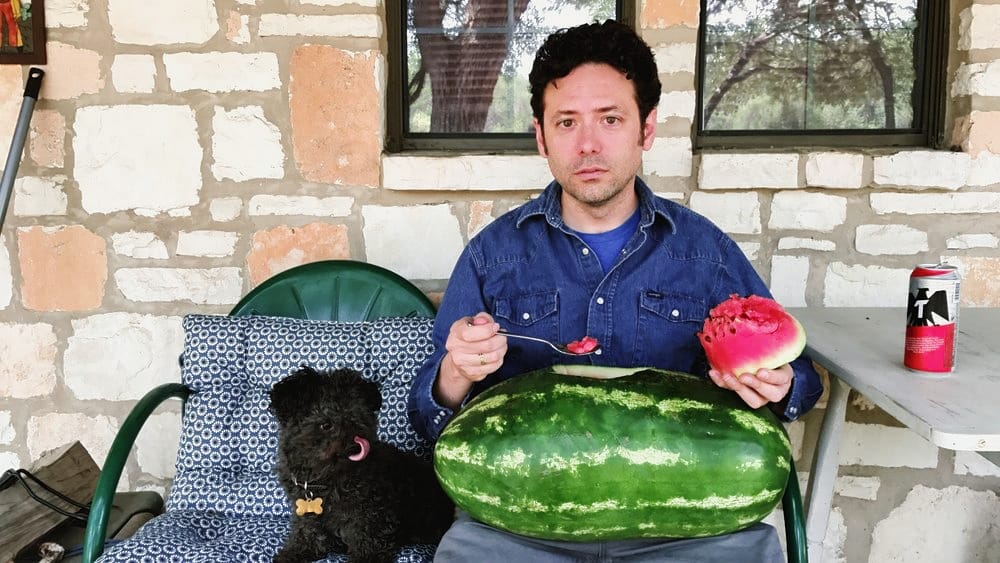
Sam: Since we're talking about health and career, I wanted to get back to the Grateful Dead and specifically Jerry Garcia. Without trying to make a wide or assumptive comparison, Garcia had two major health scares around 1986 and 1992 that were followed by artistic and career highs. Do you think there’s something to a creative rejuvenation, or perhaps just a restored spirit, after a health scare?
Jerry: I do think that there's something to getting through a serious health issue and feeling rejuvenated by that, in the same way that I think that anytime somebody can experience something traumatic and work their way through it that they're going to be stronger for it. There's sort of a sweet spot for trauma in a lot of ways because if it's too traumatic, you're not going to be okay on the other side to be able to create and do things. It certainly gives you a different perspective on life.
Anyways, I love that period of Jerry Garcia. I mean, I love the Grateful Dead, but I’m particularly fond of the Jerry Garcia Band. So, you know, you make it through something, and then you want to start counting your days more. You start thinking about time, relationships, and money differently. You get into some of these bigger questions of spirituality, and all these things become more tangible. Ultimately, when you hear about people having a renaissance of some sort, whether it's artistic or spiritual, a lot of times that's just a reawakening of something that they forgot, because they're not taking things for granted as much. I guess time will tell for me.
Sam: How has your work in rehabilitation impacted your songwriting?
Jerry: I have been working in vocational rehabilitation for about 18 years now, more on than off. That's mostly working with young adults or adults with significant disabilities. The way that it's changed my songwriting is the same way that it's changed my life, in that I think it's just very healthy to be around people who don't remind you of yourself.
The nice thing about working in social services is you're working with people of different socioeconomic classes, different races, and different cultural points of view, and your job is to help people who are not like you to be successful or to overcome some sort of barrier. Your job is to be a temporary support system in their life. I think that as much as I liked working in restaurants and record stores and video stores in my 20s, it wasn't until now that I started working somewhere where I could meet people that I wouldn't usually get to meet. When you surround yourself with people who don't remind you of yourself, I think you learn a lot. I believe that everyone should work in social services at some point, as it helps you gain a deeper understanding of yourself. It enables you to understand how complex the world is, and how this country functions in many ways, as well as the ways it doesn’t, and how individuals can make a difference in people's lives.
Sam: Is there any sort of lasting message that you want to leave people with from this record?
Jerry: I don't think so. I mean, one of the things that I try to do with my music is to explore the gray areas of the human experience. I don't want to put a bumper sticker on it. I know that I want to continue documenting my experiences and points of view in a way that’s artistic and feels fresh to somebody else. Records are still where I like to get my news; either to think about things in a new way, or to remind myself of something I’ve forgotten, or to engage my mind or body in a way that is slightly different from what it was before I listened to the music. So, if I could do that for somebody else with my music, that would always be a goal. I think that sometimes records remind us of ourselves, and sometimes they remind us of who we want to be, or they point us in the direction of where we're already headed. If people live with your music, then it's happening.
Visit Jerry David Decicca at jerrydaviddecicca.com and follow him on Instagram, Bluesky, Facebook, and YouTube. You can purchase Cardiac Country from Bandcamp or Qobuz and listen on your streaming platform of choice.
Check out more like this:
 The TonearmSam Bradley
The TonearmSam Bradley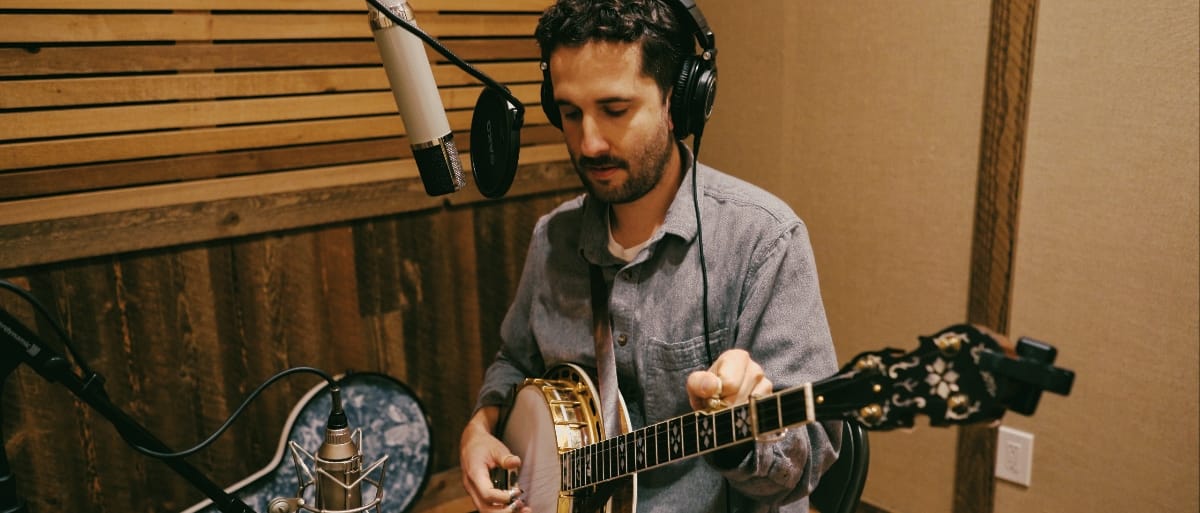
 The TonearmArina Korenyu
The TonearmArina Korenyu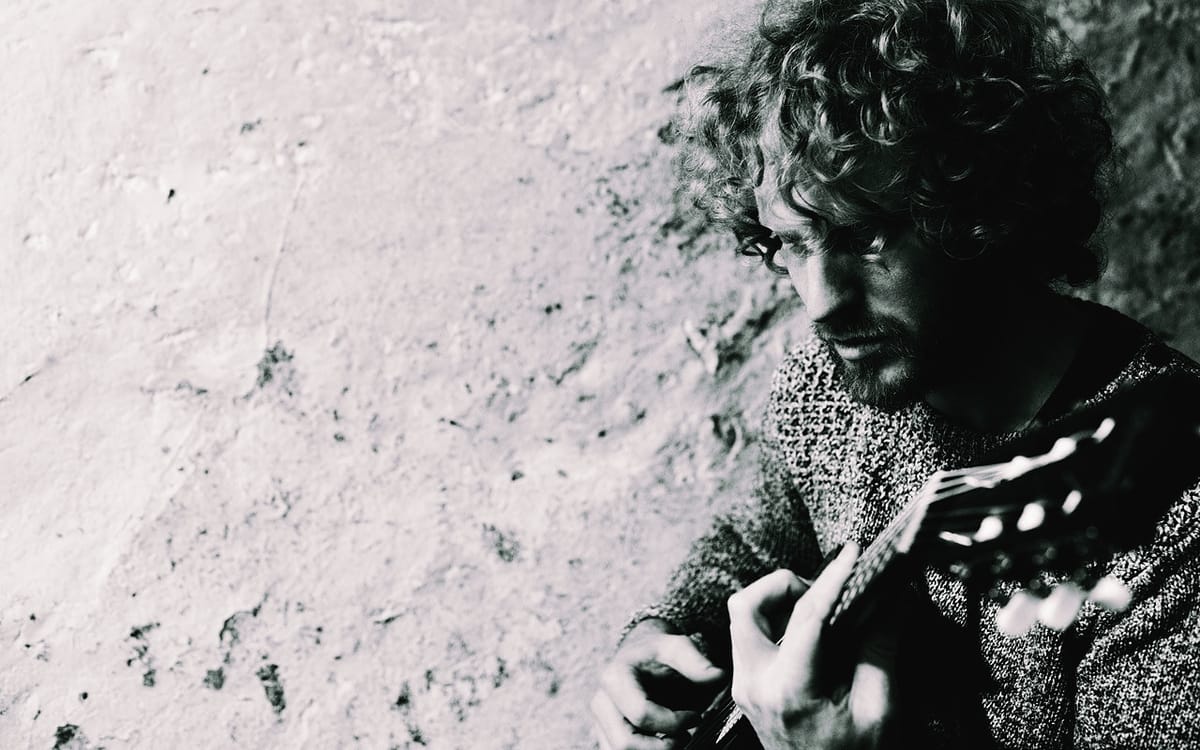


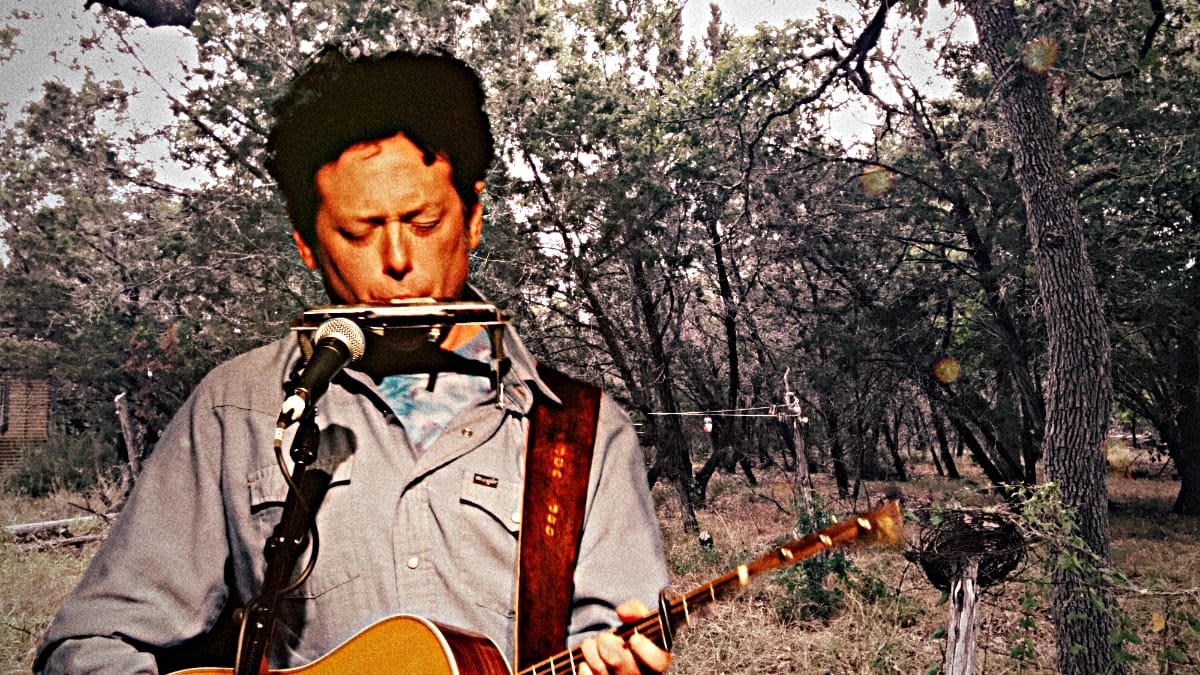

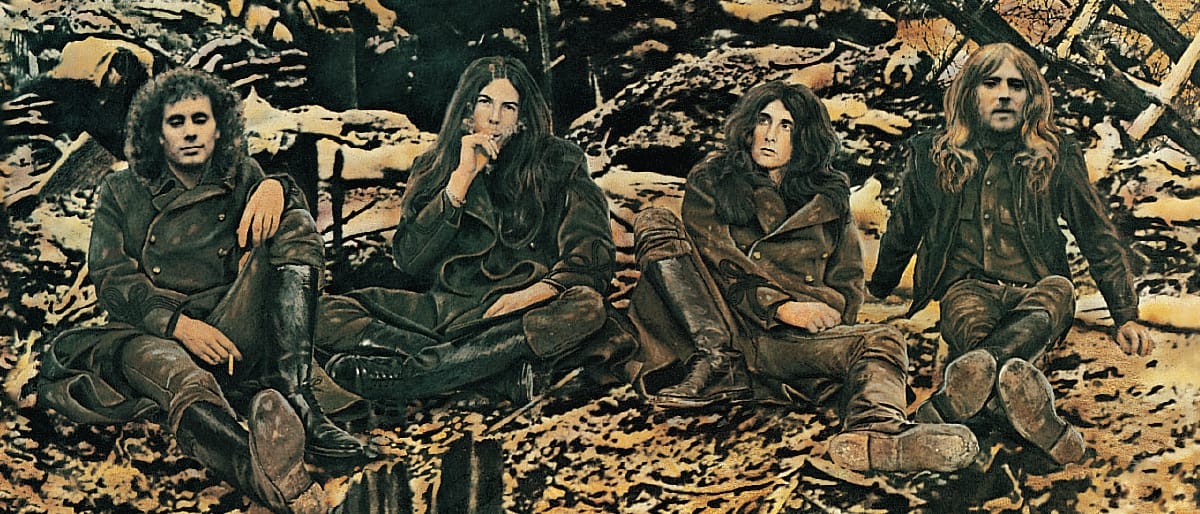
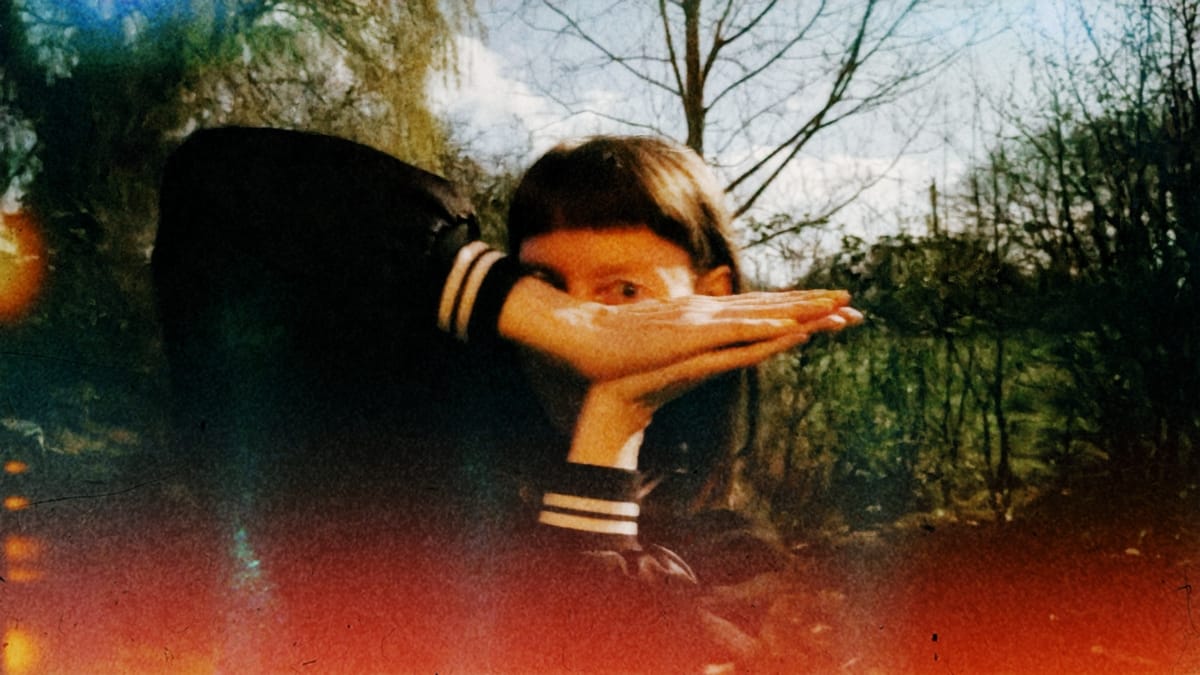
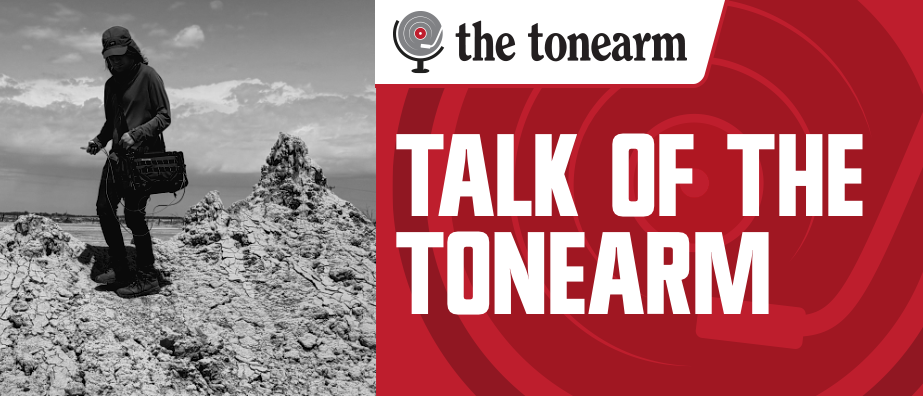
Comments